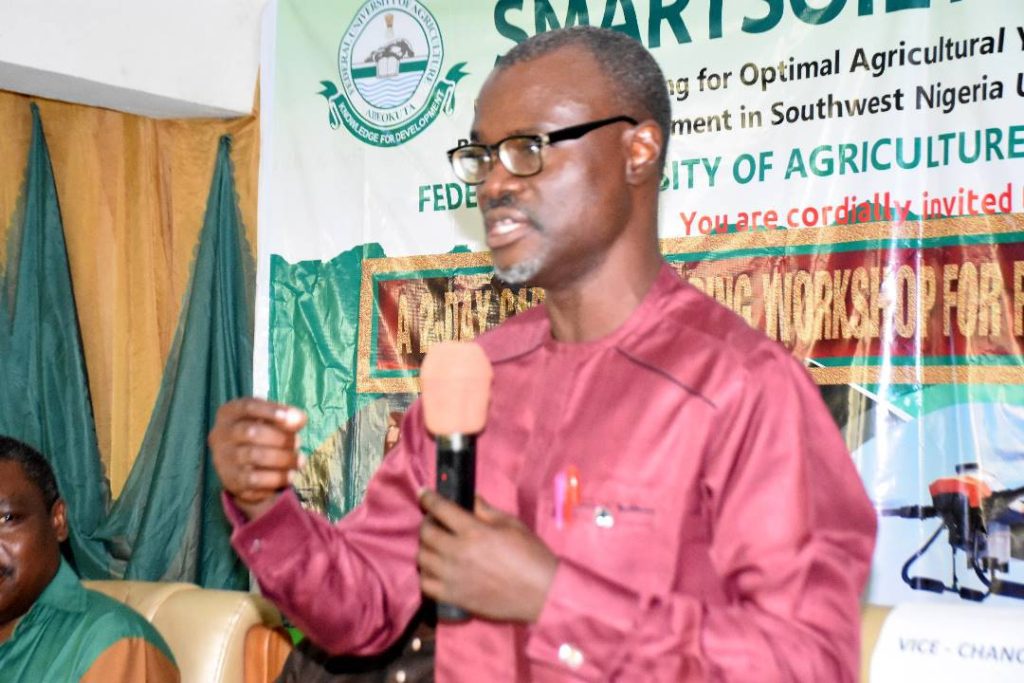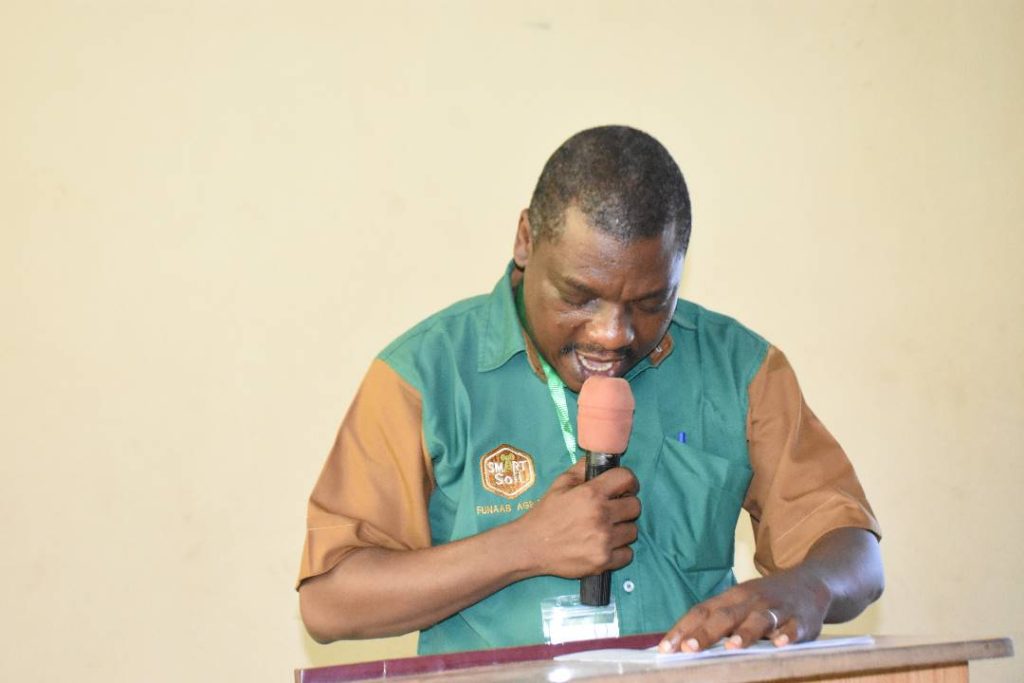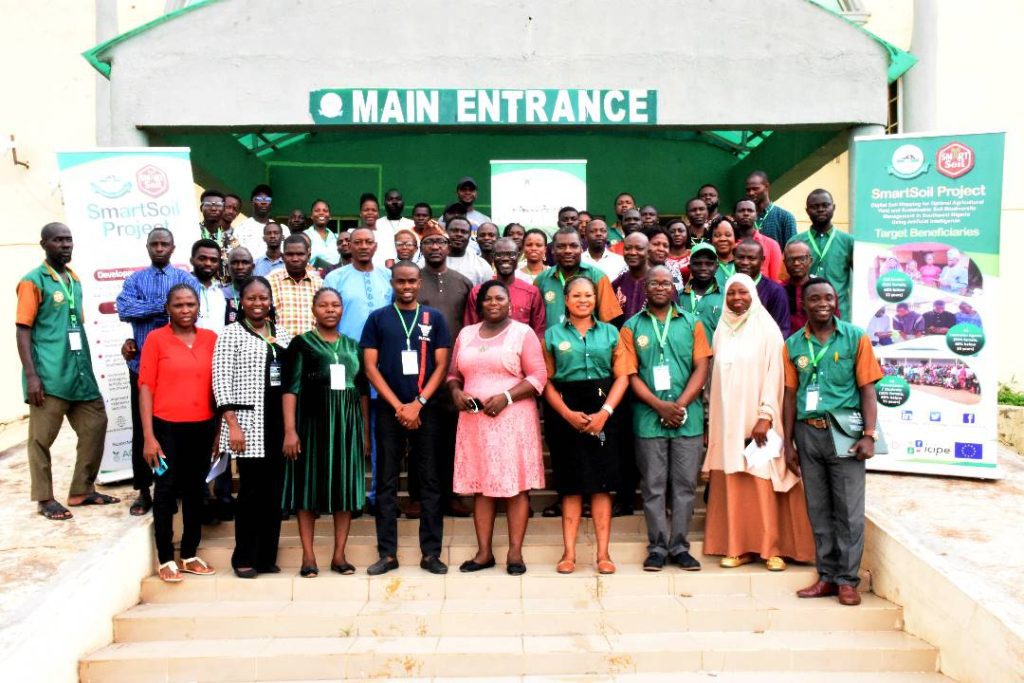The Principal Investigator, SmartSoil Project, Prof. Olusegun Folorunso, has unfolded the importance of the initiative in boosting agricultural production and promoting food security, through Digital Soil Mapping for Optimal Agricultural Yield and Sustainable Soil Biodiversity Management in Southwest, Nigeria Using Artificial Intelligence, at a 2-day capacity building workshop for researchers and Small and Medium-sized Enterprises (SMEs), held at the Oluwafemi Balogun Ceremonial Building, Federal University of Agriculture, Abeokuta (FUNAAB), Ogun State. The theme of the workshop was, ‘Digital Agriculture for Food Security: Accelerating the Development and Adoption of Agri-Based Digital Innovations in Southwest, Nigeria’.

Representative of FUNAAB VC and DVC (Development), Prof. Kolawole Adebayo.
According to Prof. Folorunso, who was host at the occasion, the programme marked the continuation of an impactful journey in the world of soil science, computer science, and agriculture in general. “You may recall that this project started last year. Without doubt, the importance of soil fertility and its effects on crop performance and yield can never be over-emphasised. Yet, majority of farmers either overlook this important fact, or largely underutilise it, principally due to their inability to investigate or estimate correctly, the level of nutrients inherent in the parcels of land available to them, and by extension, do not know if the land is actually suitable for the crop they are planning to grow on the same land. This, in turn, affects their yield negatively and, consequently, their income”.
He said these challenges had brought about the research, supported by the European Union (EU) with monitoring and evaluation by Accelerating Inclusive Green Growth through Agri-Based Digital Innovation in West Africa (AgriDI) and the International Centre of Insect Physiology and Ecology (icipe), Kenya. “The SmartSoil project offers to solve this fundamental issue by utilising existing cutting-edge techniques in soil science, coupled with new technology in computer science, to provide site-specific fertility status of soils, especially in Southwest, Nigeria. This will enable farmers to have an idea of the nutrient status and crop suitability of their land, using digital technologies. Since this project is interdisciplinary, it also calls for collaborations with so many organisations, researchers, and SMEs in the fields of soil, computer, and agricultural sciences”.

Prof. Olusegun Folorunso.
Prof. Folorunso, who is of the Department of Computer Science of the institution, disclosed that donor agencies are interested in building capacity with emphasis on youths and women, while other stakeholders are not totally excluded, which is why the various participants were invited to make an input into the programme. At the workshop, there were five sessions and modules on ‘Basics of Digital Agriculture: Challenges and Prospects’, ‘Remote Sensing, GIS and GPS in Digital Agriculture’, ‘Baseline Survey and Analysis in Digital Agriculture Research’, ‘Digital Soil Mapping and Land Use Planning’, and ‘Project Management and Fundraising’.
The Professor added that another session explained practically ‘Precision Agriculture Using Drone Technology’; by a renowned expert with more than a decade of of experience. At the workshop, there was also the question-and-answer session, which availed researchers and SMEs an opportunity to replicate most of the knowledge acquired to successfully bid for digital agriculture-based projects with the Tertiary Education Fund (TETFund) National Research Fund, and other opportunities. Meanwhile, the capacity workshop had as chief host, the Vice-Chancellor of FUNAAB, Prof. Olusola Kehinde, who was represented by the Deputy Vice-Chancellor (Development), Prof. Kolawole Adebayo.

Participants at the workshop.



